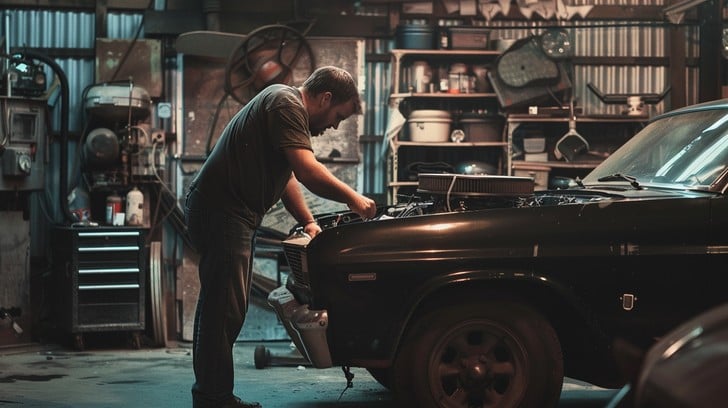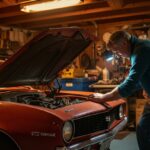Few things ruin a good week faster than a surprise visit to the mechanic. One moment, everything feels fine; the next, your car is making a noise you’ve never heard before and your wallet is about to take a hit. While some repairs are unavoidable, many costly problems start small—and can be prevented with the right habits.
Avoiding unexpected repair costs isn’t just about saving money. It’s about keeping your car reliable, safe, and enjoyable to drive. Here are simple but powerful habits that can save you from those sudden, painful expenses.
1. Stay Consistent with Regular Maintenance
Most expensive repairs begin as small issues that went unnoticed or ignored. Regular maintenance checks keep your car in good condition and catch problems early.
Follow your manufacturer’s recommended service schedule for oil changes, air filter replacements, and inspections. If your car uses synthetic oil, oil changes might be less frequent, but that doesn’t mean you can skip them. A neglected oil change can cause engine wear that costs thousands to fix later.
If you’re unsure when your next service is due, check your manual or set reminders on your phone. Treat maintenance like you treat rent or electricity—it’s not optional.
2. Check Fluids Often
Your car’s fluids are its lifeblood. Oil, coolant, brake fluid, and transmission fluid all play a role in keeping things running smoothly. When these fluids run low or get dirty, they can lead to overheating, engine failure, or brake problems.
Make it a habit to check them monthly. A few minutes spent checking fluid levels can prevent major breakdowns. If you notice a sudden drop in any fluid or see leaks under your car, get it inspected immediately. A small drip today can become a full-blown repair bill tomorrow.
3. Listen to Your Car
Cars have their own way of speaking—they hum, click, whine, or shake when something’s wrong. Too many drivers ignore these early warning signs, hoping they’ll disappear. They rarely do.
If you hear a grinding noise when braking, a knocking sound under the hood, or feel unusual vibrations while driving, don’t wait. Even if the car seems fine otherwise, schedule a quick check. Mechanics can often fix minor issues on the spot before they snowball into major ones.
4. Keep Tires in Good Shape
Tires affect more than just traction. Worn or improperly inflated tires can strain your suspension and steering, increasing wear on other components.
Check tire pressure at least once a month and before long trips. Rotate your tires every 5,000 to 8,000 kilometers to ensure even wear. Keep an eye on tread depth and sidewall cracks—both can signal it’s time for new tires.
Tires are cheaper to replace than repairs caused by poor grip or uneven stress on the car’s alignment system.
5. Avoid Cheap Parts and Quick Fixes
When it comes to car parts, cheaper isn’t always better. Non-original parts or unqualified repairs may save you a few naira now but can cost you far more in the long run.
Always buy parts from trusted dealers or have your mechanic recommend reliable alternatives. Quality parts last longer, perform better, and maintain your car’s overall value. If you ever plan to sell your car, service records showing genuine parts can even increase resale value.
6. Protect Your Car from the Weather
Heat, rain, and dust all take their toll on your vehicle. Parking under shade whenever possible protects your paint, dashboard, and rubber seals from cracking or fading. In rainy seasons, make sure your wipers and defoggers work properly to avoid water damage and visibility issues.
Wash your car regularly, especially the undercarriage, to remove mud and salt that can lead to rust. A little attention to cleanliness can prevent corrosion and keep your car looking and performing well for years.
7. Drive Smoothly
Aggressive driving habits—sudden stops, sharp turns, or quick acceleration—put unnecessary stress on your brakes, engine, and suspension. Smooth, steady driving reduces wear and improves fuel efficiency.
It also gives your car time to respond, helping you avoid accidents or quick repairs caused by rough handling. Think of it as treating your car like a long-term partner rather than a tool to push to the limit.
8. Keep an Emergency Fund for Your Car
Even with the best care, cars can still surprise you. A dedicated car maintenance fund can soften the blow when repairs happen. Setting aside a small amount monthly keeps you ready for battery replacements, brake pads, or unexpected part failures.
This fund saves you from delaying necessary repairs, which often makes things worse over time. It’s a small safety net that ensures you’re always prepared.
9. Visit a Trusted Mechanic
Building a relationship with a reliable mechanic is one of the best investments you can make. A professional who knows your car’s history can spot patterns, recommend preventive measures, and advise you honestly.
Don’t wait for a breakdown to start looking for one. Visit reputable workshops with good reviews or referrals. A mechanic who values trust over quick profit will help you save money in the long run.
Final Thoughts
Avoiding unexpected repair costs comes down to awareness, consistency, and care. A well-maintained car rewards you with fewer surprises, better performance, and a longer life span.
The next time you think of skipping that oil change or ignoring that faint noise, remember—it’s always cheaper to maintain than to repair.
Take care of your car, and it will take care of you every day you’re behind the wheel.


